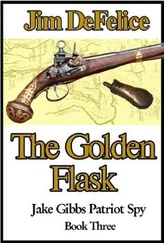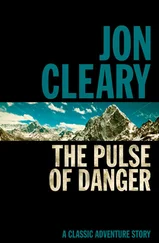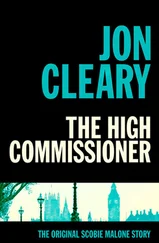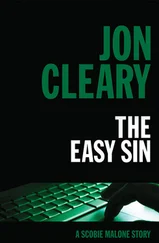‘Shut up, you old fool,’ said Natasha Mihalovna and some murmurs in the crowd seconded her advice.
‘You were the same at the priest’s trial,’ said Delyanov. ‘You’re not interested injustice, just in satisfying your spite.’
‘You don’t know what you’re talking about,’ grumbled the old woman, not sure herself what he was talking about. What was justice? No one in the village had ever known it.
Cabell looked for a priest amongst the crowd, but there was none; then he looked across the square and up past the houses to the white church on the slope above the village. Its doors were closed, planks nailed across them. Had the priest been driven out of the village or had he, too, been executed? He stared at the church, then his eye caught sight of something else on the crest of the slope. A horseman stood there gazing down on the scene in the square. The rider was small (a boy perhaps?) and he sat without moving. Was he waiting, Cabell wondered, to take a message of their execution to another village?
Cabell looked back at Delyanov. ‘What happened to the priest?’
‘They drove him away,’ said Delyanov. ‘Drove him away with stones.’
‘Good riddance!’ cackled Natasha Mihalovna.
Keria banged the pick-handle, called for order. ‘Go on,’ he said to the prosecutor.
But the prosecutor was too slow. Delyanov was back on his feet, speaking directly to the tribunal this time.
‘The young woman, if she has any sense, is to be my bride. So I say you cannot execute her friends, because they will be my friends, too. I move the trial be ended.’ He looked at the old men on either side of him. They stared back at him, neither denying him nor supporting him. He drew himself a little straighter, then turned and stared back at the crowd, challenging it. ‘Well? You have heard me speak. Let me marry the girl and let the others move on!’
There was silence for a moment, then Natasha Mihalovna chomped her gums and suddenly screamed, ‘Sit down, you old fool! The trial goes on!’
There was another moment’s silence. Cabell looked out at the crowd, realized with a sickening sudden emptiness that Delyanov was alone. Then someone clapped. The clapping spread through the crowd, hesitatingly, never loud, the hands hollow so that the sound, too, was hollow. It was an answer; but not the answer Delyanov had expected. He looked around him, bewildered; suddenly, after sixty years, he, too, was a stranger again. Abruptly he sat down, looked as if every one of his years had all at once fallen in on him. Jesus, Cabell thought, they’ve just executed him!
The prosecutor, given back the floor (or the roadway, for he stood in the middle of it), put the case against the prisoners. The foreigners had no proof that they were who they said they were; the children were half-Russian, as admitted by the American, but they did not look nor sound even half-worker. Compare them with the children of our village …
Конец ознакомительного фрагмента.
Текст предоставлен ООО «ЛитРес».
Прочитайте эту книгу целиком, купив полную легальную версию на ЛитРес.
Безопасно оплатить книгу можно банковской картой Visa, MasterCard, Maestro, со счета мобильного телефона, с платежного терминала, в салоне МТС или Связной, через PayPal, WebMoney, Яндекс.Деньги, QIWI Кошелек, бонусными картами или другим удобным Вам способом.












